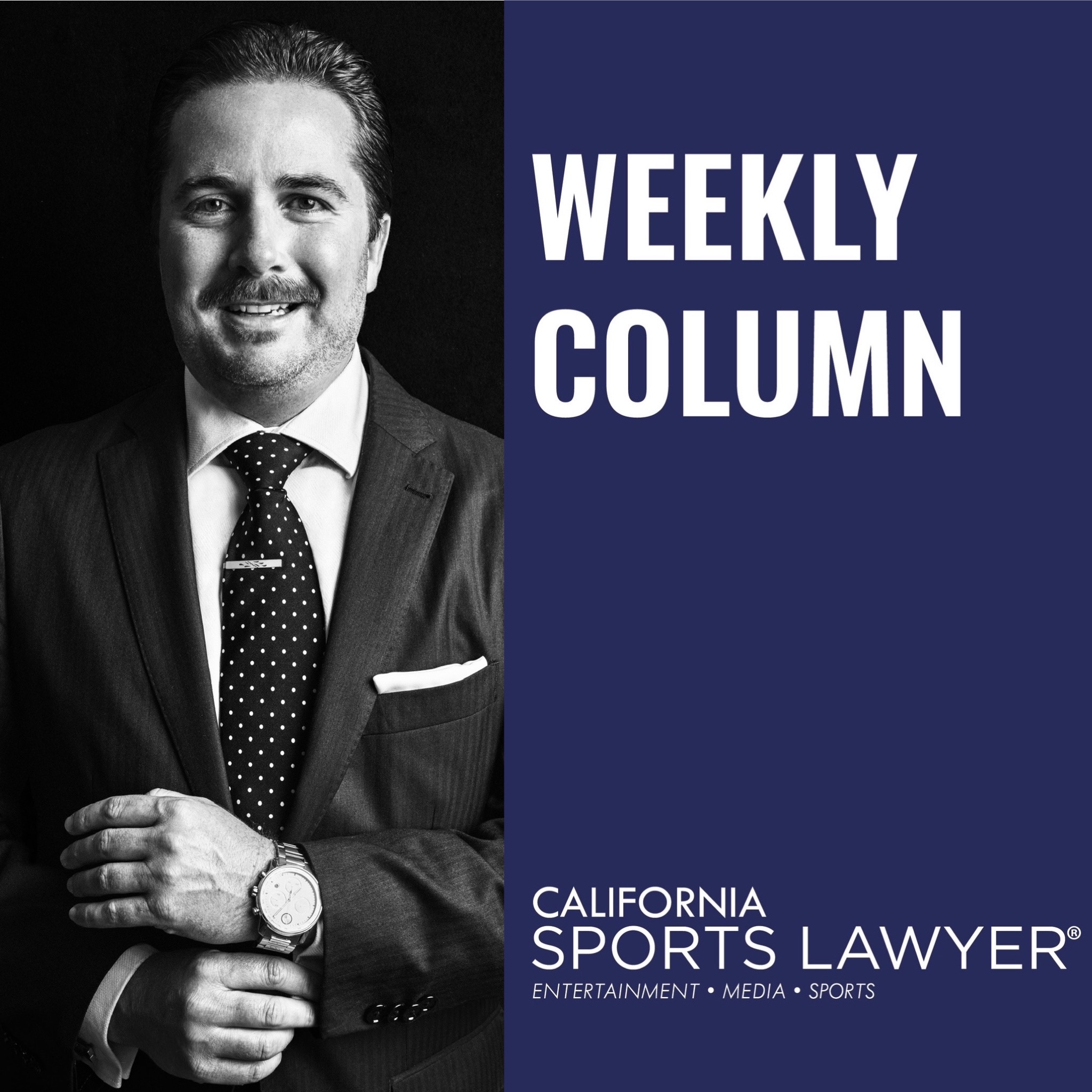In this week’s column, California Sports Lawyer® CEO, Founder, and Managing Attorney Jeremy M. Evans writes about how dealmakers in entertainment, media, and sports television and streaming negotiations can avoid blackouts with good contract drafting and understanding.
The next generation of media deals should treat continuity as a core contractual goal, not an afterthought.
You can read the full column below. (Past columns can be found, here).
~
Blackouts while watching television or streaming programming whether live sports or by channel or platform has become a common occurrence. Much to the chagrin of customers caught between a negotiation battle for better pricing and distribution, viewership is lost and frustration mounts. The recent Disney-YouTube TV dispute was the latest example and it cost both the network and copyright owner Disney and the digital streamer YouTube unreturnable hours and views.
Network television and streaming blackouts or blackouts of any kind, even those created on purpose by contract are a contract failure, not a technical issue. It is the parties inability to come to terms or to understand must haves in a contract or negotiation. The Disney-YouTube TV dispute showed how legacy carriage models collide with modern streaming realities and economics. In the end, whether it be reach, revenue, or goodwill, the leagues, networks, platforms, advertisers, players, and fans all lose in some fashion.
First, why do blackouts keep happening in negotiations and post-contract term? Rigid carriage fees that are designed for cable, not streaming churn continue to find their way into contracts. This needs to changes because it is misaligned incentives and objectives in dealmaking. Cable subscriptions are down and continue to fall. Price flexibility based on streaming churn is one solution that incentivizes more subscriptions and viewership and payment based on those numbers.
Second, going dark through a blackout should never be used a negotiation tactic unless the entities leaving can full their promises and obligations to customers immediately in another format.
Third, fragmented rights through the divide and conquer strategy is tried and tested, but it often creates and leaves a loser mentality. Licensing copyright should be seen as a reaching more people, not less. Exclusivity is not great for viewership in content especially during blackouts. Apple TV recently pursued this path when it removed the paywall so fans could watch more Major League Soccer games.
What are some solutions to prevent blackouts in the future? In other words, here is the anti-blackout playbook (e.g., what dealmakers should build into contracts) to allow seamless changes between contracts and negotiations. To begin, continuity clauses need to be included in contracts to cover for standstill periods with automatic short-term extensions and mandatory mediation or arbitration before pulling the plug.
Next, there should be flexible fee structures, shared data provisions, rights unbundling, and fan access guarantees. Meaning, variable pricing tied to usage, tiered add-ons, and shared advertising revenue to prevent all-or-nothing fee disputes where advertising and user data is shared for transparency and easier dealmaking. Even where rights are unbundled, the parties should allow premium events or channels for the remainder of season and postseason even if the larger deal falls apart. A quick pivot to another streaming platform should also be considered if a deal falls apart so fans and advertisers can easily access it.
In the future, contract terms and dealmaking can prevent blackouts. There can also be mid-term renegotiation windows and platform-flexible rights to prevent one party feeling taken advantage of because viewership has changed. League-centralization of negotiations can also limit failure in regional markets in certain circumstances. Television and streaming blackouts are not inevitable. There are a dealmakers choice that can and should be avoided. The next generation of media deals should treat continuity as a core contractual goal, not an afterthought.
~
About Jeremy M. Evans:
Jeremy M. Evans is the Chief Entrepreneur Officer, Founder & Managing Attorney at California Sports Lawyer®, representing entertainment, media, and sports clients in contractual, intellectual property, and dealmaking matters. Evans is an award-winning attorney and industry leader based in Los Angeles and Newport Beach, California. He can be reached at Jeremy@CSLlegal.com. www.CSLlegal.com.
Copyright © 2025. California Sports Lawyer®. All Rights Reserved.





